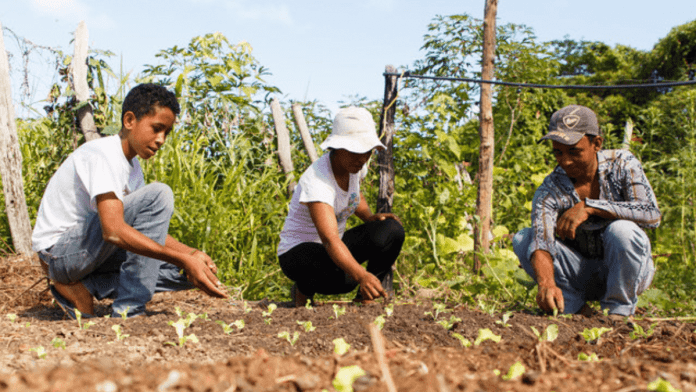News in Brief:
– Development agencies and the government of Brazil’s Ceará have launched a project to enhance climate resilience for over 250,000 people across 72 municipalities.
– The will empower family farming, promote sustainable agriculture practices, and cut down carbon dioxide emission.
The United Nations’ International Fund for Agricultural Development (IFAD), the National Bank for Economic and Social Development (BNDES), and the government of Ceará, a state in Brazil, have launched a project aimed at bolstering the climate resilience of more than 250,000 individuals across 72 of its municipalities.
The project, named Sertão Vivo, represents a significant investment of 252 million reales (approximately $54 million).
Originally planned for implementation in four states with a joint allocation of one billion reales (about $217 million), the project’s scope has expanded to include nine states with a total investment of 1.775 billion reales (around $386 million). This expanded effort is expected to benefit 1.8 million people, prioritising the inclusion of women, youth, and traditional communities.
Sertão Vivo comes at a critical time for food security in Brazil. Recent data from Rede PENSSAN, a Brazilian academic network, reveals that over half of the country’s population experienced food insecurity in 2022, with rural populations particularly affected. In Ceará alone, 2.4 million people suffer from hunger.
Empowering family farming
Recognising the pivotal role of family farming in combating food insecurity, Rossana Polastri, IFAD’s Regional Director for Latin America and the Caribbean, stressed the importance of supporting these groups to enhance their resilience and productivity in the face of climate change.
The project will also promote the establishment of integrated agroforestry systems to enhance soil fertility and carbon content. Additionally, it will encourage water capture, storage, and utilisation practices to help crops and livestock withstand irregular rainfall patterns and prolonged droughts.
Through these activities, the project aims to prevent the emission of approximately 11 million metric tons of carbon dioxide, equivalent to around 339,000 people flying from São Paulo to Manaus. Furthermore, funding from IFAD, the Green Climate Fund (GCF), BNDES, and the state will support the construction or restoration of small-scale infrastructure such as cisterns, proven to be effective over decades in IFAD-supported projects in the Northeast region.
For IFAD, this initiative represents a new operational model, blending large-scale funding from various sources with investments in the environment and climate change mitigation to alleviate rural poverty.



